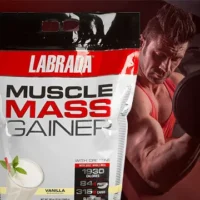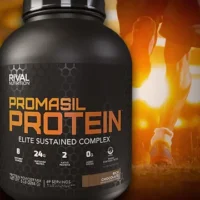Knowledge BaseYou're Questions Answered
Is protein powder a supplement?
Protein powder is indeed considered a dietary supplement. As a product designed to provide additional protein, it complements the diet, particularly for individuals who may not be able to meet their protein needs through food alone. Protein powders are popular among athletes, bodybuilders, and those with increased protein requirements, such as individuals recovering from illness or those following specific dietary patterns.
What Defines a Dietary Supplement?
According to the U.S. Food and Drug Administration (FDA), a dietary supplement is a product taken orally that contains dietary ingredients intended to supplement the diet. These ingredients can include vitamins, minerals, herbs, amino acids, and other substances used to increase dietary intake. Supplements can come in various forms, including tablets, capsules, powders, and liquids1.
Protein Powder as a Supplement
Protein powder fits the definition of a dietary supplement as it is formulated to provide a concentrated source of protein, a crucial macronutrient. It is available in various forms, such as whey, casein, soy, pea, hemp, and other plant-based proteins. The primary purpose of protein powder is to supplement an individual's protein intake, which can be especially beneficial in the following scenarios:
- Muscle Building and Recovery: Protein powder is commonly used by athletes and fitness enthusiasts to support muscle protein synthesis, recovery, and growth after exercise2.
- Dietary Convenience: For individuals with busy lifestyles, protein powder offers a convenient way to ensure adequate protein intake without the need for meal preparation.
- Special Dietary Needs: Those following specific diets, such as vegetarian, vegan, or ketogenic diets, may use protein powders to help meet their protein requirements while adhering to dietary restrictions.
- Medical and Health Conditions: Some individuals may require additional protein due to medical conditions, recovery from surgery, or age-related muscle loss. Protein supplements can assist in meeting these increased needs.
Regulation and Labeling
As a dietary supplement, protein powder is regulated differently from conventional foods and pharmaceuticals. In the United States, dietary supplements are regulated under the Dietary Supplement Health and Education Act of 1994 (DSHEA). While the FDA oversees dietary supplement products and their labeling, the responsibility for ensuring safety and accurate labeling primarily lies with the manufacturers1.
- U.S. Food and Drug Administration. (2020). Dietary Supplements.
- Phillips, S. M. (2014). A brief review of critical processes in exercise-induced muscular hypertrophy. Sports Medicine, 44(1), 71-77.
Related Questions
Protein vs Protein

Your Answer
We are a participant in the Amazon Services LLC Associates Program, an affiliate advertising program designed to provide a means for us to earn fees by linking to Amazon.com and affiliated sites.


